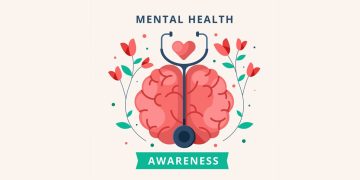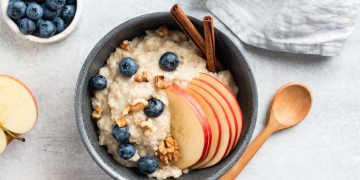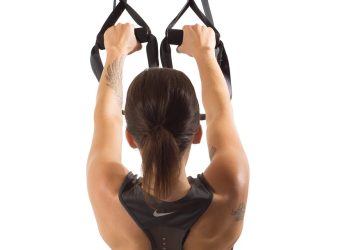The Ultimate Guide to Achieving Peak Fitness: Tips and Strategies for Optimal Wellness
Are you looking to take your fitness to the next level and achieve peak physical wellness? If so, you’ve come to the right place. In this comprehensive guide, we will provide you with tips and strategies to help you reach your fitness goals and optimize your overall wellness. From nutrition to exercise, we will cover all aspects of peak fitness to help you live your best life. Let’s dive in!
Setting Your Fitness Goals
Before you embark on your fitness journey, it’s essential to set clear and achievable goals. Whether you want to lose weight, build muscle, improve endurance, or simply lead a healthier lifestyle, having specific goals will help keep you motivated and on track. Make sure your goals are realistic, measurable, and have a timeline for completion. This will give you a clear roadmap to follow and allow you to track your progress along the way.
Creating a Balanced Workout Routine
A key component of achieving peak fitness is establishing a balanced workout routine that incorporates a variety of exercises. This should include cardiovascular exercises to improve endurance, strength training to build muscle mass, and flexibility exercises to increase mobility and prevent injury. Aim to workout at least 3-5 times a week, with a mix of different activities to keep things interesting and challenging.
Cardiovascular Exercises
Cardiovascular exercises, such as running, cycling, swimming, or dancing, help improve your heart health, burn calories, and boost your endurance. Aim for at least 150 minutes of moderate-intensity cardio each week, or 75 minutes of vigorous-intensity cardio. Mix up your routine with different activities to keep things exciting and prevent boredom.
Strength Training
Strength training is essential for building muscle mass, increasing bone density, and improving overall strength. Incorporate exercises such as weightlifting, bodyweight exercises, and resistance bands into your routine. Aim to work each major muscle group at least twice a week, with a focus on proper form and technique to prevent injury.
Flexibility Exercises
Flexibility exercises, such as yoga, Pilates, or stretching, are crucial for maintaining mobility, preventing injury, and improving overall flexibility. Aim to incorporate flexibility exercises into your routine at least 2-3 times a week, focusing on stretching all major muscle groups and holding each stretch for 30-60 seconds.
Eating for Peak Performance
Your diet plays a significant role in achieving peak fitness and optimal wellness. Eating a balanced diet rich in nutrient-dense foods will fuel your workouts, aid in recovery, and support overall health. Aim to include a variety of fruits, vegetables, lean proteins, whole grains, and healthy fats in your meals to ensure you’re getting all the essential nutrients your body needs.
Hydration
Proper hydration is essential for peak performance and overall wellness. Drink at least 8-10 cups of water per day, or more if you’re engaging in intense physical activity or living in a hot climate. Hydration is crucial for regulating body temperature, aiding digestion, and lubricating joints, so make sure you’re drinking enough water throughout the day.
Pre-Workout Nutrition
Before a workout, it’s essential to fuel your body with the right nutrients to ensure optimal performance. Aim to eat a balanced meal or snack containing carbohydrates for energy, protein for muscle repair, and a small amount of healthy fats. Foods such as whole grain toast with peanut butter, Greek yogurt with fruit, or a banana with almonds are excellent options to fuel your workout.
Post-Workout Recovery
After a workout, your body needs to replenish glycogen stores, repair muscle tissue, and rehydrate. Make sure to consume a combination of protein and carbohydrates within 30 minutes of finishing your workout to promote muscle recovery and restore energy levels. Foods such as a protein shake, turkey sandwich, or quinoa bowl with vegetables are great choices for post-workout recovery.
Rest and Recovery
Rest and recovery are just as important as exercise and nutrition when it comes to achieving peak fitness and optimal wellness. Giving your body time to rest and repair is crucial for preventing overtraining, reducing the risk of injury, and allowing your muscles to grow and recover. Aim to get 7-9 hours of quality sleep each night, and incorporate rest days into your workout routine to give your body time to rejuvenate.
Quality Sleep
Getting enough quality sleep is essential for optimal health and wellness. During sleep, your body repairs and regenerates tissues, balances hormones, and consolidates memories. Aim to create a sleep-friendly environment by keeping your bedroom dark, quiet, and cool, and establish a relaxing bedtime routine to help you wind down and prepare for sleep.
Active Recovery
On rest days, consider incorporating active recovery activities such as walking, swimming, or gentle yoga to help improve blood flow, reduce muscle soreness, and promote relaxation. Active recovery can help speed up the recovery process, prevent stiffness, and improve overall mobility and flexibility.
Supplementation
In addition to a balanced diet, supplementation can help support your fitness goals and optimize your overall wellness. Consider adding supplements such as protein powder, omega-3 fatty acids, vitamin D, and magnesium to your daily routine to fill any nutrient gaps and enhance your performance. Consult with a healthcare professional or nutritionist to determine which supplements are right for you and your specific needs.
Protein Powder
Protein powder is a convenient and effective way to increase your protein intake and support muscle growth and repair. Whey protein, plant-based protein, and collagen protein are popular options that can be easily added to smoothies, oatmeal, or baked goods. Aim to consume protein powder within 30 minutes of finishing your workout to maximize muscle recovery and growth.
Vitamin D
Vitamin D is essential for bone health, immune function, and mood regulation. During the winter months or if you live in a region with limited sunlight, consider adding a vitamin D supplement to your daily routine to ensure you’re getting an adequate amount. Vitamin D can also help support muscle function and improve overall performance during workouts.
Tracking Your Progress
Tracking your progress is essential for reaching your fitness goals and staying motivated along the way. Keep a workout journal, use a fitness app, or invest in a fitness tracker to monitor your workouts, nutrition, sleep, and overall progress. Set benchmarks and goals for yourself, and regularly assess your performance to identify areas for improvement and celebrate your successes.
Measuring Success
Success looks different for everyone, so it’s essential to define what success means to you and track your progress accordingly. Whether it’s hitting a new personal record, losing a certain amount of weight, or simply feeling healthier and more energetic, celebrate your achievements no matter how big or small. Remember that progress takes time, consistency, and dedication, so stay patient and committed to your fitness journey.
Conclusion
Achieving peak fitness and optimal wellness requires dedication, commitment, and a well-rounded approach to exercise, nutrition, rest, and recovery. By following the tips and strategies outlined in this guide, you can take your fitness to the next level, improve your overall health, and live your best life. Remember to set clear goals, create a balanced workout routine, eat for peak performance, prioritize rest and recovery, consider supplementation, track your progress, and celebrate your achievements along the way. With perseverance, patience, and consistency, you can achieve peak fitness and optimize your overall wellness. Here’s to your health and success!











































